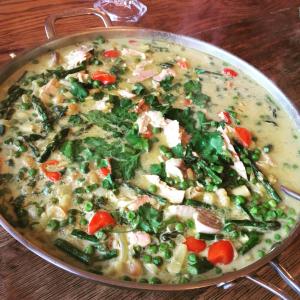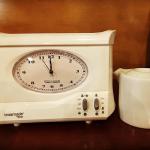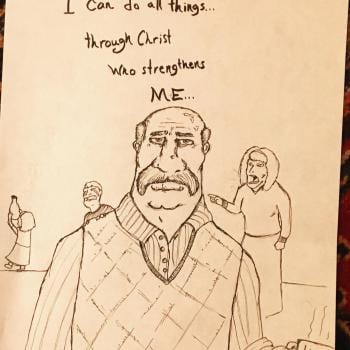I’ve been working to my utmost to get to 50 books read this year. Part of that effort has been enduring some reads on audible that aren’t quite, how shall I say it, the most scintillating. Case in point, I cheerfully and relentlessly made it through Consider The Fork by Bee Wilson. If you want to congratulate me, please go ahead.
Truly, Consider the Fork is just a touch, well, it is a good book for the persistent. If you wanted to think really a long time about the fork, the chopstick, the knife, the spoon, the refrigerator, ice in general, how a kitchen is laid out, how did we come to have a kitchen anyway, what is it about fire, why do you keep buying new ways to make coffee, and even—and this was really the bit that held me in its vice grip—why do we have overbites, this will be the book for you. But perhaps you will rush off to fluffy and more entertaining reads.
The thing is, while she didn’t quite explore the whole business of cooking in the way I wished she would—never jumping over the barrier of the intricate technical details of the tools as such, which was the point of the book so I shouldn’t really complain, into the deeper and more primordial question of Food—she did come quite close. Her readiness to consider how kitchen technology changed when servants were a thing, and then how it changed again when they were no longer a thing, was happily fascinating. But she didn’t really go as far as I wished she would.
Which would have been into the realm of so much modern day nostalgia, the embrace of the new domesticity on one hand, and the council of biblical whatnot on the other, the idea that a woman will be really happy occupying herself in the home and certainly in the kitchen. The evolution of kitchen tools has a lot to do, so Bee Wilson suggests, with comfort, with how we feel when we are standing solitary before the fire, what we expect and hope to feel when we are handling the stuff that keeps us alive. Someone needs to come along and inquire into why, for so many, it is not just about comfort but also about morality.
I thought of this chiefly because of the funny passage describing how one fancy lady spent hours making her poor kitchen maid try out one “time saving” device after another—the lady carrying on with the total absence of guile. And later in the part about how yogurt did not become a consumable commodity until people were trying to think of things to put in their new gloriously cold refrigerators.
In spite of the encyclopedic nature of the book and the general avoidance of deeper psychic and political questions, I enjoyed it pretty well and have wandered around in my own kitchen in a more hyper way than usual.
And anyway, I made up a pretty glorious cross between Paella and Bouillabaisse. What I did was, I flung four pieces of salmon and four pieces of tilapia into rather a hot oven for a bit and went along mincing an onion really finely, and some garlic, and sweating them in butter very gently in my larger skillet. And while that was going on I did up a whole lot of asparagus into one inch bits and added them in with the onion. At some point I took the salmon and tilapia out and left it alone on the counter so as to be getting along adding frozen shrimps, scallops, and peas to my onion and asparagus along with some stock and a lot of cream. To that I added a hefty pinch of saffron, some paprika, and languidly halved small cherry tomatoes and arranged them all in around the shrimps. Then I put the lid on and let it very gently simmer on low until the shrimps were pink. After which I turned it off and tore the fish apart with two forks and added it in amongst the asparagus, scallops, peas, and shrimps. So fish stew really. And very warming for a bitterly cold St. Nicholas Day.













